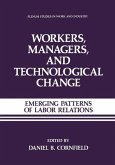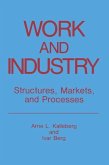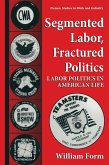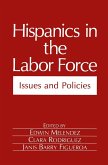During the 1980s the news media were filled with reports of soaring unemployment as 'downsizing' and `restructuring' became the new buzzwords. Firms managed their workforce reduction by increasing the attractiveness of their pension plans-especially their early-retirement plans. In this volume, the authors examine the U.S. auto industry and present a full-scale analysis of the work and retirement decisions of its workers. They address organizational context and the logic of financial incentives in employer-provided early retirement plans. The impact of pension provisions, layoffs, plant closures, attitudes about `generational equity', and other factors influencing the workers' evaluation of the optimum time to end their careers in the auto industry are explored.
Dieser Download kann aus rechtlichen Gründen nur mit Rechnungsadresse in A, B, BG, CY, CZ, D, DK, EW, E, FIN, F, GR, HR, H, IRL, I, LT, L, LR, M, NL, PL, P, R, S, SLO, SK ausgeliefert werden.
`This book breaks important new ground... This study is unusual in that the authors had access to the characteristics of the workers as well as survey data on worker attitudes.' Contemporary Sociology (July 1998)
`This book breaks important new ground... This study is unusual in that the authors had access to the characteristics of the workers as well as survey data on worker attitudes.'
Contemporary Sociology (July 1998)
Contemporary Sociology (July 1998)









